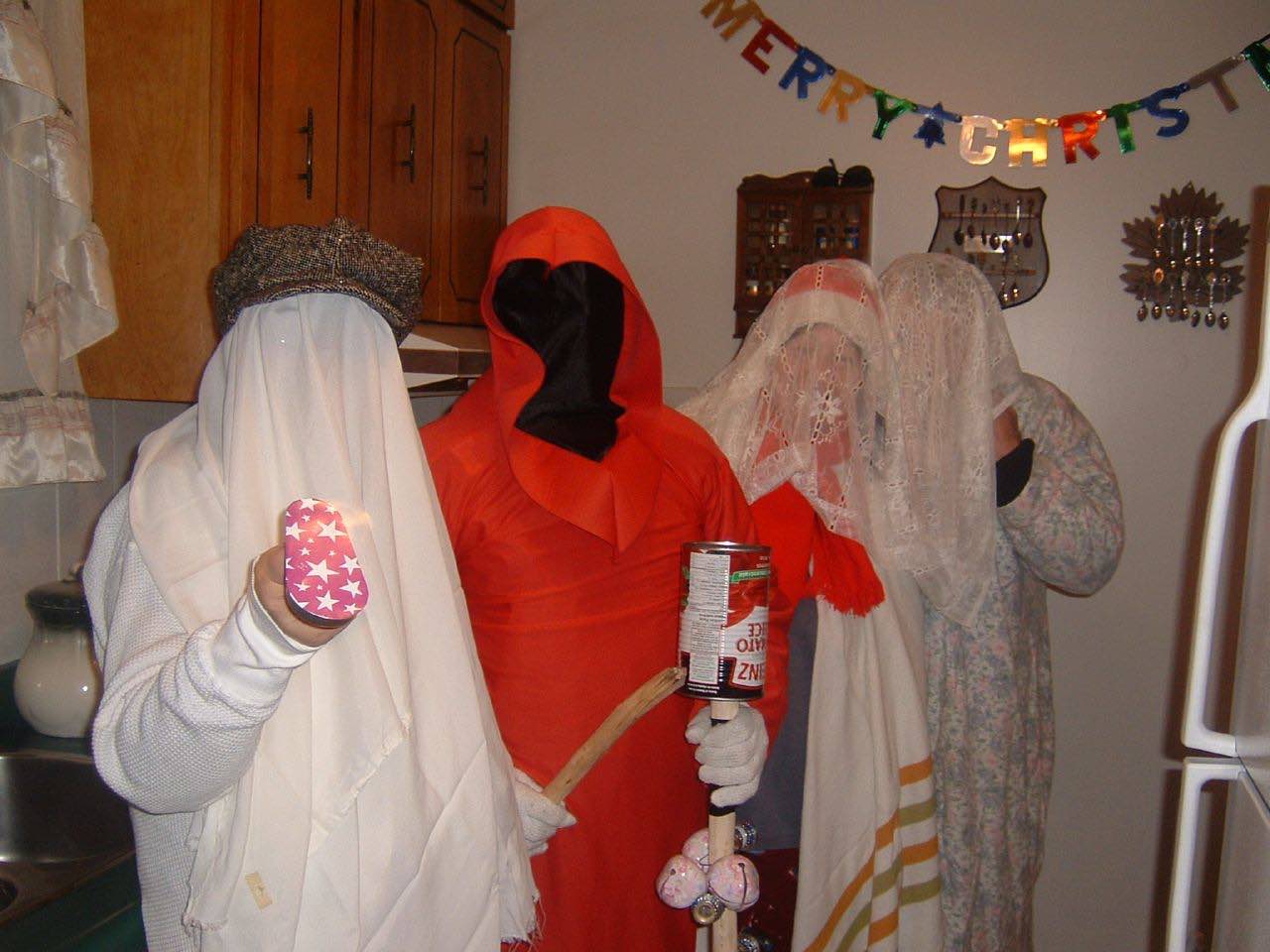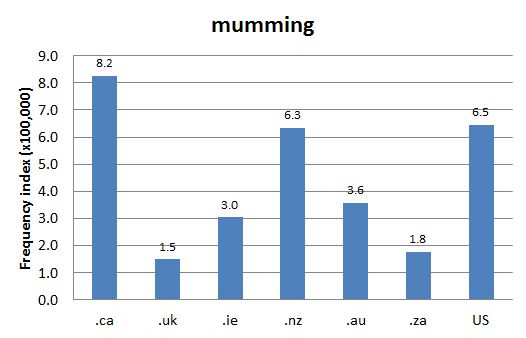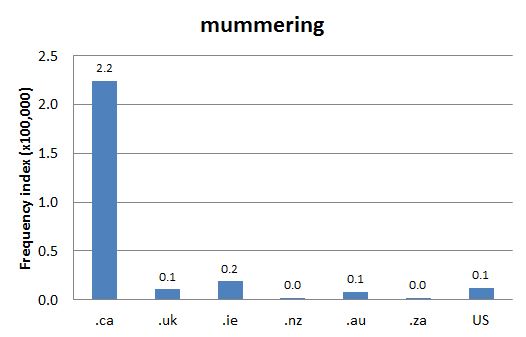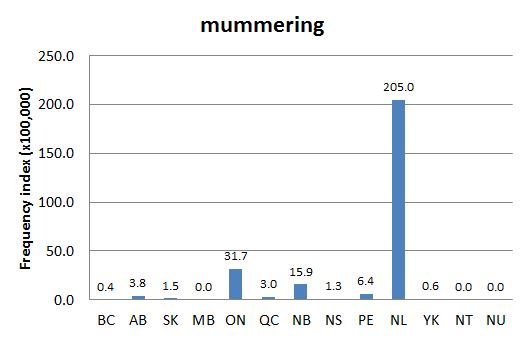DCHP-2
mummering mumming DCHP-2 (October 2016)
n. — also attributively, Newfoundland, Social customs
the practice of visiting houses in elaborate costumes and disguises, participating in various group activities over Christmas (see Image 1).
Type: 4. Culturally Significant — The tradition of mummering or mumming seems to have been inherited from England (see the 1988 quotation & EDD), though the spelling variant mummering is virtually exclusive to Newfoundland (see the 1969 quotation, Halpert & Story 1969: 216, and Charts 2 & 3 below). In Halpert & Story, Widdowson suggests that mumming is the "usual printed form" which is occasionally used orally in Newfoundland, but notes that "in many areas on the east and south coasts, 'mummering' is regarded as the normal, long-established term", while mumming seems to be "the most frequent [term] on the south coast and in the Bay St. George and Codroy Valley areas of the west coast [...and] the one most commonly used in St. John's, and is frequently found elsewhere on the east coast where, with some exceptions, it is regarded as the 'old' term. In some communities both 'mummering' and 'mummer' may be the only accepted terms", and the newer form of janneying is the "normally accepted term on the west coast of the Great Northern Penninsula" (1969: 216-17).
Halpert proposes that mumming in Newfoundland can be categorized by location (indoors or outdoors) and whether it is formal or informal (Halpert & Story 1969: 35-61).
Informal indoor visits include house visits, which is the primary definition of mummering in the DNE. Associated with house visits is a guessing game where residents attempt to guess the identities of the mummers, whose costumes are usually very elaborate and often involve cross-dressing to further obscure their identities. There is also the formal outdoor parade form of mummering, which sometimes includes pageants or plays along the procession. Mummering today is more than a preservation and expansion from British English, as it also serves to mark local cultural practice of Newfoundland pride (see Moore 2012).
Mummering has been banned several times (for example, see the 1966 & 2011 quotations) due to some mummers' rowdy and sometimes criminal behaviour. These civic bans "have a curious habit of repeating themselves in time, suggesting the deep-seated nature of the custom of mumming, which has been suppressed only to rise again in the old or a new form" (Halpert & Story 1969: 51). After a murder in 1861, Newfoundland's Legislative Assembly passed an act which banned anyone from dressing as a "Mummer, masked, or otherwise disguised" (Halpert & Story 1969: 179), and this act has never been officially repealed. After this ban, both the disguises and parades continued, although the two became disassociated. Disguising continued mostly in the form of the house visits, and Story suggests that “the deep-rooted traditions of parades during the Christmas season led to a partial transference in Newfoundland [of several fishermen’s societies' parades, which] instead of holding their official parades on July 12, held them [during the Christmas season]” (Halpert & Story 1969: 53).
See also DNE, s.v. "mummer" and "mummering", and OED-3, s.v. "mumming" (1a), EDD, s.v. "mum" (v.1 and sb4).See also: janneying
- Mumming is the "usual printed form" of the term, according to Widdowson (Halpert & Story 1969: 216). Use of mummering or mumming also seems to depend on location. (See also Halpert & Story 1969.)
- Note that faces may be covered (as in Image 1) or may not. There is outdoor mummering and indoor mummering (as in Image 1).
References:
Images:

Image 1: Indoor mummering. Source: Wikimedia Commons. Photo: J. Higdon
Chart 1: Internet Domain Search, 15 Jul. 2013
Chart 2: Internet Domain Search, 15 Jul. 2013
Chart 3: Regional Domain Search, 15 Jul. 2013


